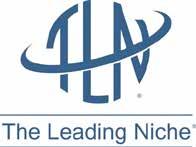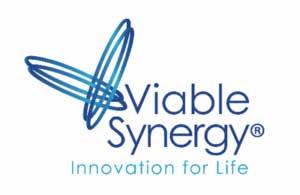






Senior
Senior






Designer
Distributor
omen are doing amazing work in combining the arts, design, and STEM fields to make technology effective and accessible to the world,” says Gallego.
For years, women have been fighting against the antiquated belief that people who code and create algorithms are the only ones who can build AI. Although this area is changing, it is still heavily dominated by men. For their whole careers, many have been doing this by spearheading the push for ethical and transparent AI innovation.
Nowadays, a new era of ethical innovation is being shaped by women, who are the “hidden figures” of AI. In the area of generative AI, women are paving the path everyday for a new era of unparalleled worldwide innovation. Global Biz Outlook recently weighed in with their annual review of The Most Empowering Women Leaders in AI.
Here at Global Biz Outlook, we recognize the efforts of these AI leaders who are successfully enacting change inside their companies and making a difference in the business world in unique ways. We honor them

Sugandha Sharma
with the dedication of this issue, “ The Most Empowering Women Leaders in AI.” Featuring the Cover Story, we have captured the successful journey of ers is Dr. Tamara L. Nall, a USA Today and Wall Street Journal Bestselling Author, Machine Learning, Artificial Intelligence, and Data Analytics Expert, also known as “The Data Wrangler.” Dr. Tamara is the Founder and CEO of The Leading Niche (TLN) Worldwide Enterprises, Inc. Learn more about her journey in this exclusive article.
This edition also includes the triumphant voyages of Rebecca Kurian, Vice President of Growth at Entropik Technologies; Nesma Bensalem, Founder & CEO of WeCare Impact; Léa EL Samarji, Global Data and AI Sales and Services Innovation Lead at Avanade; Peiru Teo, CEO of KeyReply; and Sunnie Southern, Founder and CEO of Viable Synergy.
We sincerely hope that the Interviews, articles, and stories covered in this edition inspire all our readers, instilling them with a passion for achieving exceeding success. Do flip every single page to unveil the secret of the success of these transformational leaders, creating success marks with their passion.











Dr.
A Persistent AI Leader Shapes the Industry and the World
Artificial Intelligence (AI), undoubtedly, is the next step in evolution for humanity and those at the forefront of the field are inevitably responsible for shaping the next stage of human civilization, whether directly or indirectly.
Leaders in AI have made substantial advances in the field, from creating new models and algorithms to investigating the ethical and social ramifications of AI. Their research has also significantly influenced contemporary disciplines and the development of all AI-based tools. One of those leaders is Dr. Tamara L. Nall, a USA Today and Wall Street Journal Bestselling Author, Machine Learning, Artificial Intelligence, and Data Analytics Expert, also known as “The Data Wrangler.” Dr. Tamara is the founder and CEO of TLN Worldwide Enterprises, Inc. (DBA: The Leading Niche).
Tamara’s entrepreneurial spirit inspired her to establish the foundation for The Leading Niche, a globally renowned tech company that provides data analytics, cyber security, and other IT solutions in public health and financial services, including in the USA, Canada, Europe, and Africa.
Dr. Tamara’s story of his current career path and leadership
Dr. Tamara holds an MBA from the Harvard Business School and a Doctorate in Engineering from George Washington University (GWU) in Washington, DC. Her doctoral research focused on Machine Learning. She earned a BS degree in Chemical Engineering from Georgia Tech and a BBA from Emory University. She received an honorary degree and a Doctor of Humane Letters from Luther Rice College and Seminary. Having a diverse academic background made her able to be strategic and technical. When many strategic professionals have a difficult time with technical areas, and vice versa, she could do both. Dr. Tamara’s academic background also lent itself to her professional career because she was staffed on highly technical engagements that involved senior corporate executives. Her academic and professional experience prepared her to be an entrepreneur because Dr. Tamara has to use all of those to run a successfully growing company.
Before founding The Leading Niche, Dr. Tamara worked for almost a decade at Booz & Company in their healthcare practice. During her tenure, Dr. Tamara was just 2.5 years away from becoming a partner. This
experience was pivotal in developing her consulting skill set, including team building, tackling complex issues, and expanding the client base. Working at Booz & Company allowed her to gain hands-on experience in managing large-scale projects, understanding client needs, and delivering high-impact solutions.
THE LEADING NICHE: Delivering Predictive Data Analytics and Machine Learning for Those whose Decisions Impact the World
THE LEADING NICHE is an award-winning and internationally recognized company that uses data and cutting-edge consulting to deliver ‘actionable intelligence’. THE LEADING NICHE supports commercial and government customers in domestic and international markets, including the United States, Canada, Europe, and Africa. The firm specializes in Big Data, Machine Learning, and Artificial Intelligence. Dr. Tamara curates intellectual capital for the company’s research arm, NALL-EDGE.
Success Mantra: Cutting-edge services, clients on top priority
THE LEADING NICHE’s unprecedented customer service and unique but realistic recommendations differentiate it from its competitors. “We also



make sure we know the professional goals and priorities of our clients so that as they become successful, we become successful,” says Dr. Tamara.
Mission to create a significant impact
“Our goal has not changed and has been consistent since its inception. I put many prayers and thoughts into it and wanted it to reflect those aspects that were most important to the core of who I was and what the company is,” says Dr. Tamara.
“Our mission is to become the premier ‘top of mind’ provider of data analytics and consulting to federal customers worldwide, the employer of choice for top talent, and a place where employees can tap into their best selves,” assures Dr. Tamara.
Work culture is the backbone of its growing business.
The company’s core values drive its work culture and are integrated into everything they do, including its performance evaluations and bonus program.
Pivotal moments in Dr. Tamara’s life: TLN makes a real difference
Dr. Tamara says “There have been many pivotal moments, but the moments that make me most proud are when my employees tell me the impact that we make with our TLN Cares initiative, where we give out $10k grants to different community organizations, or when an employee shares that their TLN job helped them get off of government assistance and can provide the best Christmas for their children. Or when an employee worked for us and then got promoted to be #2 at a national nonprofit in New York. This lets me know that TLN makes a difference.”
In a world where dreams deposit and inspiration multiplies, Dr. Tamara’s life is influenced by the following:
“It might sound cliché, but my parents have been my life’s biggest influence. They never pressured us to be anything but be good Christian people. They always supported me when I’m at my best and challenged me when necessary. Most of all, they raised me to know that I could do anything that I put my mind to and to have faith. They also prayed for me, and I could always feel the favor,” expresses Dr. Tamara.
A clear picture turning into reality
“We envision a world where customers, employees, and partners receive a “white glove” customer service experience unlike any other,” asserts Dr. Tamara.

The company builds customized algorithms to help its clients solve unique problems. They also have an internal think tank that provides intellectual capital for THE LEADING NICHE’s research arm, NALL-EDGE. The company offers enhanced customer experiences that are personalized using predictive data analytics.
According to Dr. Tamara, AI will always need human interaction. AI can only go so far. While it will replace some repetitive, mundane tasks depending on the data and variable inputs, highly specialized jobs will always require human involvement.
“The best way to stay up-to-date with AI is by listening to podcasts and webinars. Also, follow AI experts (like me!). Subscribe to top management consulting firms and leading tech companies to see what they do. Sign up for AI classes,” she continues.
“The future of AI is poised to bring transformative changes across all aspects of society. As technology continues to evolve, the focus will increasingly be on ensuring that AI benefits humanity while addressing the ethical, legal, and social implications associated with its widespread use,” she added.
“My vision is to continue to grow The Leading Niche and add value to our customers, a place where our employees are proud to work and are learning and contributing to the communities in which we live, work, and serve,” assures Dr. Tamara.




With over 14 years of experience in the data and AI field, Léa EL Samarji, Global Data and AI Sales and Services Innovation Lead at Avanade (a joint venture between Accenture and Microsoft) is a passionate leader driving innovation, growth, and value for clients and humans through cutting-edge technologies and solutions. With her AI execution and roadmap, Léa, a driven pioneer of generative AI, is making waves in businesses and regions.
At Avanade, Léa set the go-to-market strategy, developed internal capabilities and tools, and defined multiple operating models for a cost-effective and high-quality service delivery covering advisory, system integration, and managed services.
Léa always supports clients across industries and geographies. She collaborates with Microsoft, Accenture, Databricks, Genesys, and other IoT partners to deliver innovative and impactful solutions.
Additionally, Léa is the France Ambassador for Women in AI, a non-profit organization that promotes diversity and inclusion in the data and AI world, and a lecturer at Sciences Po, where she teaches ‘AI foundations for business.’ She holds a PhD in cybersecurity and AI, a Master’s degree in IT security and cryptography, and multiple certifications and awards.
Léa’s mission is to create an influential impact “When I started my mission at Avanade as an AI and IOT offering lead, I had a mission to grow our AI offering and solutions from incubation to
industrialization. We had so many assets and solutions when I started. I decided to pick up with the team’s main offerings, where we were strong and advanced, and we tried to shape them correctly and develop them further internally as well as with our partners In order to gain more market share in those offerings. And this strategy had worked! Focusing on our key strengths and developing them further to match and sometimes overcome our client expectations was a successful strategy to grow and then build additional offerings,” says Léa.
Success begins with overcoming the starting hurdles
At the beginning of her career, the biggest hurdle was related to people accepting AI technology and adopting it. Indeed, it was not easy to explain and convince people of a new AI solution. There is always the fear of something new—the fear of having their job replaced or completely transformed. So, adopting a real strategy for change management was key to success.
Pivotal moment
Léa’s pivotal moment was joining the Women in AI NGO as the France ambassador. She really
understood how the human factor is key and why diversity in a team is important to building responsible and inclusive technology.
Avanade: A joint venture between Accenture and Microsoft
Established in Seattle, Washington, and formed in 2000, Avanade is the leading global provider of digital, cloud, AI, advisory services, industry solutions, and design-led experiences across the Microsoft ecosystem.
With Accenture, Avanade has been recognized as Microsoft’s Global SI Partner of the Year more than any other company. With the most Microsoft Most Valued Professionals, certifications (60,000+), and 18 (out of 18) Gold-level Microsoft competencies, Avanade is uniquely positioned to help businesses grow and solve their toughest challenges.
Avanade is a responsible business committed to building a sustainable world through the power of people and Microsoft. The company holds itself accountable to environmental, social, and governance targets,
ensuring its business is sustainable for the long term.
Avanade’s flagship initiatives set it apart from others Avanade was named Best AI Consulting Service Provider | Avanade. This award recognizes Avanade’s Disrupt Avanade program, one of the flagship initiatives established following the appointment of Florin Rotar as the company’s first-ever Chief AI Officer. The program is part of Avanade’s Global Center for AI which oversees the company’s AI strategy, the upskilling of 60,000 employees, and responsible AI practices. It helps Avanade explore, build, and adopt AI across all business functions, with a ‘people first’ mindset that prioritizes culture, upskilling, and change management.
Avanade has been at the forefront of developing AI solutions in collaboration with Microsoft for over a decade, most recently pioneering with generative AI applications. As early adopters of Copilot, they have also played a critical role in previewing, developing, and deploying the full suite of Microsoft Copilots,
enabling them to have market-leading offerings available on day one of general availability. Avanade and Accenture have continued this momentum with the rollout of industry-specific Copilots and Microsoft Agents for Copilot, showcased at Microsoft Build in May 2024.
Delivering a diverse and inclusive workplace
“At Avanade, our people are our greatest strength. Every day, our 60,000 professionals in 26 countries harness the power of their diverse backgrounds to make a genuine human impact for our clients, their employees, and their customers,” asserts Léa.
“We strive to offer a diverse and inclusive workplace where everyone can achieve the full scope of their potential, whether that means taking advantage of flexible working hours and arrangements, furthering their skills through learning development or joining an employee network to help elevate the voices of underrepresented communities,” she continues.
people, they’re equally prepared to invest in the world around them,” Léa added.
“Avanade has pursued a deliberate and purpose-driven strategy around inclusion, diversity, and well-being since its founding in 2000. We know that if our inclusive culture doesn’t consider all races, gender identities, sexual orientations, disabilities, ages, religions—all people and all phases of life—it falls short,” asserts Léa.
Léa’s opinions: Will AI replace jobs or is it a human-centered system?
Every critical AI solution should have a human-in-the-loop approach, especially if it needs to learn continually on data that changes constantly. The beauty of AI is that it’s able to incorporate large sets of data to predict or respond to an ask. As the world is changing, and data is being produced massively every day, either internally within enterprises or externally on the internet, AI results should be checked constantly.
we will see jobs getting transformed with AI and sometimes completely disrupted (e.g.; call centers). I see this as an opportunity for people to learn, to transform their way of working and their way of thinking, and to focus more on high-value actions. However, I believe that companies should take the action of training people whose jobs will be transformed. It’s also the responsibility of governments to take actions and create awareness around AI.
According to Léa, reading and learning continuously is the best way to stay up to date with AI.
Future goal of a noble soul
“My goal is to work together with the subject matter experts on developing sustainable and responsible AI solutions. We need to use AI in a way to reduce bias that exists already in the society, and to create services that are good to the planet as well as to human beings,” says Léa.
“Doing the work of a responsible business starts from within. Because when you invest in your
I am not very concerned about AI replacing jobs. As any new technology comes into our lives,


alesforce, a leader offering CRM solutions globally, is ever-advancing in keeping pace with the needs of modern business. Salesforce’s real game-changer is its artificial intelligence that makes things such as customer interaction, sales management, and marketing strategies a great deal easier. Let’s delve into AI’s implications, facts, and insights on how Salesforce is skyrocketing with AI.
The AI Revolution in Salesforce
Salesforce has come up with inventive ideas since it has implemented Salesforce Einstein that was first launched in 2016. Einstein is an AI system installed as a component of the Salesforce ecology that contributes both the machine learning capabilities and deep learning, natural language processing and predictive analytics to the CRM ecosystem. It imbues the capability of businesses to gather much more value from their data which eventually improves customer experience and decision-making processes.
Enhanced Customer Insights: With the salesforce AI-enabled, it now has access to the database to produce better and predictive analytics regarding customer behavior and preferences. It goes through large amount of data and can recognize patterns and trends that human eyes may not notice. Therefore, the companies can forecast customers’ expectations, increase the interaction personalization, and deliver services of more suitable and up-to-date varieties.
Improved Sales Forecasting: AI based predictive analysis is a technology which gives the forecasting more precision. With Salesforce Einstein, the past and present data as well as market trends are crunched to develop forecasts of future sales
performance. It will lead to the establishment of objective sales caps, execution of accurate resource allocation, and development of clear sales plans.
Better Marketing Strategies: AI enhances the effectiveness of marketing by giving valuable information on how well the campaign is performing and levels of customer engagement. Based on the revelation, marketers get the chance to fine-tune their campaigns, disaggregate the market, and customize the messaging. AI is equally supportive for A/B testing to
investigate which content is doing better and which strategies are working correctly.
Better Customer Service: AI-based chatbots and virtual assistants are engines for immediate responses to requests as well as handling them simultaneously. They are able to take many calls or queries at a time and, hence, serve customers with great efficiency and quickly. AI learns from the history of interactions and knowledge bases to point out relevant information for the agents as well.
Enhanced Decision-Making: Sales-
force Analytics powered by AI present timely analytics and recommendations for business executives to apt, critical and well-timed decisions. Using historical data and the current status, AI can give advice on the best alternative solutions for various situations, minimizing risks and thus increasing opportunities.
Personalized Customer Experiences: AI helps Salesforce deliver individualized customer experiences by tailoring the interactions based on customers’ own details. This can be personalized emails to customers
offering special deals or products based on their past purchases. This way, customer satisfaction and loyalty will be increased.
Improved Customer Retention: AI forecasts customer behavior, thus helping businesses focus on the ones who may leave by implementing tailored retention strategies. AI is able to track engagement patterns and transaction history in order to detect the probability of consumers leaving early and then the business can react naturally towards the retention of valuable consumers.
Facts and Statistics
▪ Salesforce’s study revealed that 61% of workers have or will implement AI technologies including generative AI, while 68% believe it improves customer service and 67% think that, besides concerns for risk management and learning necessary skills, it will maximize other technology investments.
▪ A survey by Salesforce’s State of IT emphasized that 86% of IT leaders believe that generative AI, a technology that was set to be used soon at the organizations.
▪ According to a survey on 500 IT decision makers, it was concluded that around 74% of Executives think that generative AI is “a game changer.”
▪ Even though generative AI is a recently developed technology, 51% of over 1,000 marketers that Salesforce surveyed, are already working with it or are using it for experimentation. Besides that 22% of the marketers in the survey reported that they would use generative AI very soon – which, if that were to happen, would mean that nearly three times more marketers in this survey would use it today already, compared to the past.
▪ According to the study, less than a third of salespeople surveyed are using or plan to use generative AI compared to over 50% of marketers. Also, 61% of sales professionals said that generative AI will enhance how they serve their customers. This is the same percentage of sellers who think these tools will help them sell more efficiently.
Insights into AI-Powered Salesforce Features
Salesforce Einstein Lead Scoring: It uses artificial intelligence to score leads on a scale of how likely they are to convert. With the use of artificial intelligence on historical data, such as past interactions and levels of engagement, Einstein scores the lead, giving the sales team the flexibility to prioritize prospects that have high potential.
Einstein Opportunity Insights: Artificial intelligence in this feature provides insights into opportunities at the point
of sale. It shows which deals are in a closing deal cycle and which might be at risk. It goes deeper into elements like customer sentiment, email engagement, and the stage of the deal to provide actionable recommendations.
Einstein Vision and Language: Einstein Vision allows businesses to embed image recognition into their applications with ease to execute tasks such as product identification and visual search. On the other hand, Einstein Language offers natural language processing capabilities that enable companies to analyze customer sentiment, extract key phrases, and categorize text data.
Einstein Bots: These are AI-powered chatbots that handle routine customer inquiries, like updating the status of orders and other basic troubleshooting. They can escalate complex cases to a human, ensuring your customers are well taken care of.
Einstein Discovery: It leverages data analysis by providing actionable insights. It highlights patterns, trends, and correlations from the data analytics, and proposes solutions that enhance the business outcomes. For example, it can determine the reasons that lead to sales growth or customer turnover, thus giving the business the ability to implement preventive actions.
Einstein Next Best Action: It is a feature that utilizes AI for suggesting the most appropriate action for any given situation. Through data analysis from different sources, Einstein Next Best Action offers guidance to sales representatives, marketers, and customer service teams who prioritize the best results with each of their interactions.
Einstein Voice Assistant: It allows users to use speech commands for interacting with Salesforce. It improves efficiency as it allows hands-free operation using voice prompts, sales and service executives can update records, set reminders and access real-time data while on the move through natural language interaction.
AI integration implemented in Salesforce reforms CRM delivering higher customer engagement, productivity, and sustaining growth. AI-based solutions with predictive analytics, automation, and personalized experiences are rewriting customer communications and operations into the new experience. AI keeps evolving and it helps businesses to remain competitive and to deliver ultimate value.




Nesma Bensalem, Founder & CEO of WeCare Impact, is a creative social entrepreneur, system designer, and advisor. Her mission is to harness the power of creativity, technology, and community to drive meaningful sustainable change and help organizations and individuals tackle pressing social, environmental, and economic challenges.
“At WeCare Impact, our core values—purpose, innovation, inclusivity, collaboration, and creativity—form the foundation of our organization. We are dedicated to making a positive impact through creativity, technology, and community,” assures Nesma.
Nesma’s leadership journey: Behind the scenes
Nesma’s leadership journey has been shaped by diverse experiences and a deep passion for storytelling. Growing up in Algeria, France, Ivory Coast, Senegal, and the US, Nesma was immersed in diverse cultures. This multicultural upbringing, coupled with her love for reading and philosophy, highlighted the profound impact of stories on shaping perceptions and relationships. As a global citizen, she always felt compelled to use her skills to foster deeper connections among people across lands and cultures.
High impact change: The power of influence
Nesma’s mother is the greatest influence in her life. Despite wars, international relocations, and moving across continents as a single parent, she broke barriers by becoming the first woman from the Middle East and North Africa to serve on the Board of a multilateral financial institution. From her, Nesma learned resilience, compassion, and the importance of striving to make the world a better place.
A resilient entrepreneur fostering a world where creativity and innovation drive positive change
“Her work as a development economist in Africa exposed me to key issues. By age eight, I wrote my first UNDP article; she helped shaped my worldview and commitment to making a positive impact. She nurtured my creativity and intellect, exposing me to diverse experiences through art, cultural engagements, and real-world issues - Her unwavering belief in my potential has been pivotal,” says Nesma.
“I wouldn’t have been as exposed to diverse cultures, received the same educational opportunities, or felt as confident about my ability to contribute uniquely to the world without her,” Nesma added.
How did she arrive at it?
After graduating from NYU with a degree in Social Studies and Film and TV Production in 2013, Nesma ventured into the
film and media industry, focusing on socio-environmental stories. By 2016, she began exploring immersive technologies like AR/VR to foster empathy and advance storytelling.
Throughout her career, Nesma has developed a diverse skill set that has been instrumental in her success as an entrepreneur. Her experience in film and TV production honed her ability to craft compelling narratives that drive social impact. Leading projects with top consumer brands and international institutions like the World Bank sharpened her strategic and creative skills.
“I was also fortunate to meet and collaborate with mindfulness leaders like Deepak Chopra and engage with a wide array of stakeholders. My personal development practices, such yoga, Shaolin Kungfu, and meditation, have made me a better leader, enabling me to navigate the challenges of entrepreneurship. Interacting with diverse stakeholders and sectors has deepened my understanding of system dynamics. By offering consulting and advisory services in areas like culture, social impact, sports and music, ethics, mindfulness, and emerging technologies like blockchain and artificial intelligence, I have broadened my expertise and influence. Understanding how these diverse elements interact has allowed me to weave my own web and contribute uniquely.” says Nesma.
These experiences taught her invaluable skills such as leadership, design thinking, adaptability, creative thinking, and empathy. They have prepared Nesma to be an effective entrepreneur and leader.
Inspirations to come up with the idea Nesma’s idea for the company emerged during the pandemic when the world came to a halt, offering a moment of reflection. With an impressive and diverse background in media, emerging technology, and social impact, she contemplated on what she was inspired
to contribute in this next chapter. This period of stillness inspired Nesma to integrate her insights and create a vehicle designed to inspire others to join the story and become part of the solution.
Driven by the belief that positive change can be enabled through the power of arts, technology, and community, she strives to create transformative solutions that inspire lasting change. The goal was to support organizations and individuals in making a positive impact on the world by addressing pressing social, environmental, and economic challenges in a creative and innovative way. This ultimately led to the foundation of WeCare Impact.
Overcoming the initial obstacles to success
Starting WeCare Impact came with unique challenges. Transitioning from a freelance consultant and creative director to the founder and CEO of a startup involved significant learning curves.
Bootstrapping the company and positioning it at the intersection of arts, technology, and community—a sector not widely recognized for its impact potential until recently—was demanding. Proving her thesis, gaining credibility, and building a like-minded team required persistence and strategic planning.
“Women entrepreneurs face additional challenges. Despite the difficulty of earning respect and being taken seriously in a male-dominated industry, I remained steadfast in my mission. These experiences have fortified my resilience and adaptability, sharpened my strategic thinking and foresight skills, and reinforced my commitment to driving positive change.” expresses Nesma. forging my path. My
experiences have strengthened my strategic thinking and foresight skills, strengthening my commitment to driving positive change,” expresses Nesma.
WeCare Impact: A purpose-driven creative studio & consulting firm Headquartered in New York and established in 2020, WeCare Impact believes that creativity can change the world. As a purpose-driven creative agency and consulting firm, it leverages the power of arts, technology, and community to make a real impact.
WeCare Impact (WCI) was founded on the belief that three key pillars—arts, technology and community—could be leveraged to create a more equitable, inclusive, and inspiring future. These pillars became the foundation of WeCare Impact’s work and philosophy.
Leading provider of cutting-edge services and serving clients
WeCare Impact differentiates itself with an unique blend of purpose-driven mission focused on art, technology, and social impact. It employs integrated, multidisciplinary approaches, human-centric design, deep collaboration, and a strong commitment to innovation, ethics, and sustainability.
Their personalized client experiences, proven track record, and continuous adaptability further reinforce their position as a leader in the industry. By choosing WeCare Impact, clients partner with a company that not only understands their needs but also shares their vision for a better, more impactful world.
T-Together, E- Everyone, A- Achieves, M - More: TEAM
“By flipping the “me” to “we,” both metaphorically and practically, WCI emphasizes the importance of collective effort. With WCI, I aim not only to drive change but also to invite others to
bring their skills and interests to contribute to a circular, purpose-driven world. My philosophy is that when we care together, we can truly make an impact. WCI invites everyone to join the story, become actors in the solutions, and help build a more equitable, inclusive, and caring world through collaboration and shared resources,” asserts Nesma.
“Our team of experienced creatives, strategists, and consultants work together to help organizations and individuals create positive change in their communities,” she continues.
Innovative work culture is the backbone of its growing business
“We foster a work culture where every voice is heard, every idea is valued, and every individual feels empowered. Collaboration is central to our approach, with our team working closely with clients, partners, and communities. Our commitment to excellence, integrity, creativity and innovation ensures we deliver effective, responsible solutions.
“Driven by continuous learning and diverse perspectives, we push the boundaries of what’s possible. We strive for excellence, maintaining the highest ethical standards and embracing creativity to solve complex problems. Our goal is to benefit society as a whole while supporting personal and professional growth,” says Nesma.
The collaborative approach between humans, AI, and technology
“Despite leveraging advanced AI technologies to enhance our capabilities, human oversight, decision-making, and creativity remain integral to our processes at WeCare Impact. AI augments human expertise, not replaces it.
Human creativity, empathy, and strategic insight are irreplaceable. Together, we can accomplish more, innovate faster, and make a greater positive impact on the world. At WeCare Impact, we believe in collaborative journeys where humans use advanced technology to build a better tomorrow.” assures Nesma.
The company leverages AI as a strategic tool to drive innovation and create new opportunities. By utilizing AI’s advanced analytics, they craft effective campaigns and initiatives that resonate deeply with their audience. AI also improves productivity by streamlining and automating operations, enabling team members to focus on more creative and critical tasks.
Beyond efficiency, they use AI to explore new dimensions and perspectives in their creative work and client services. AI is used as a tool not to replace but augment human potential and creativity. This approach to technology helps WeCare Impact continue to present innovative ideas and gain deeper insights, making their work more impactful and forward-thinking.
“As we continue to explore the possibilities of AI, we remain committed to maintaining a human-centered approach, ensuring that technology serves the needs of the community,” says Nesma.
“Our vision is a world where creativity and innovation are catalysts for positive transformation, inspiring communities and businesses to work together towards a more equitable, sustainable, and compassionate future. We envision a future where impactful stories, strategic initiatives, and cutting-edge technologies converge to create lasting solutions for the benefit of all,” asserts Nesma.
Bright future roadmap
“Over the long run, I envision myself as a leader, creative and innovator, guiding WeCare Impact toward global influence. My personal goal is to deepen my expertise in integrating arts, technology, and community, while inspiring others in this space. I aim to leave a legacy of purpose, empathy, and positive change,” says Nesma.
“In the future, WeCare Impact aims to expand its influence, innovate its platform and services, and foster an ecosystem of purpose-driven organizations and individuals. By leveraging blockchain and AI, we will create a seamless platform that better serves our communities, inspires our audiences, and fosters deeper collaborations. Through creativity, collaboration, and technology, we plan to amplify our impact and address global challenges,” she continues.
“WeCare 2.0 represents the next chapter in our journey. We are not just advising and supporting organizations in using arts, technology, and community engagement to address social , environmental and economic challenges, but also developing a platform that seamlessly integrates these elements. This new platform will improve how we serve clients, expand our impact, and drive systemic change. The future is now, and we’re here to help design it,” Nesma added.
“I believe that WeCare Impact will lead the way in creating an equitable, inclusive, and inspiring future through our unwavering commitment to our mission and values,” Nesma asserted.


Looking further ahead to 2024, it’s becoming more and more clear how artificial intelligence (AI) is transforming industries and redefining the nature of labor in the corporate world. Businesses are embracing revolutionary trends that spur innovation and competitiveness as a result of AI technology breakthroughs. Let’s examine the top AI trends in the business world for this year and how they affect companies.
Customization is becoming more and more important as companies look for AI solutions that are suited to their unique requirements and goals. Artificial Intelligence is being customized to match certain corporate environments, whether it’s for improving consumer experiences, optimizing decision-making, or reducing operational procedures. With the help of this trend, businesses can now fully utilize AI to meet their unique possibilities and challenges.
Open-source AI models are becoming more widely available, democratizing access to cutting-edge AI technology and enabling companies to promote innovation and expedite development. Businesses can obtain state-of-the-art AI capabilities without being constrained by proprietary systems by utilizing these models. Within the AI community, this approach encourages cooperation and knowledge exchange, which propels overall development.
API-Driven AI and Microservices
APIs allow businesses to gradually utilize AI features by enabling the smooth integration of AI capabilities into current corporate systems. This integration is further improved by microservices design, which divides AI systems into modular parts that are simpler to install and maintain. This trend encourages efficiency and agility in all organizational activities by enabling organizations to implement AI in a flexible and scalable way.
Governments everywhere are seeing the strategic value of artificial intelligence (AI) and are investing more to encourage the field’s study and uptake domestically. The increasing understanding of AI’s potential to spur innovation, economic growth, and national competitiveness is reflected in this trend.
Beyond text, generative AI is extending to other modalities, such as graphics and music, opening up new possibilities for virtual agents and content creation tools. This trend encourages innovation in fields like virtual assistants, content creation, and media production by enabling businesses to give users more immersive and engaging experiences.
The need to ensure AI is used safely and ethically is becoming more and more important as it becomes more commonplace. Businesses are putting policies and procedures in place to













control the ethical application of AI, addressing issues with accountability, transparency, and bias. This trend emphasizes how crucial ethical issues are to the development and application of AI, building credibility and confidence among stakeholders.
Artificial intelligence (AI)-driven cybersecurity solutions are crucial for safeguarding company data and infrastructure in light of the growing sophistication of cyber threats. AI technologies are making it possible to anticipate, identify, and handle security incidents more quickly and efficiently than in the past. With the help of this trend, organizations can protect their digital assets and remain ahead of ever-evolving cyber dangers.
AI is transforming supply chain management by improving inventory control, streamlining logistics, and using predictive analytics for demand forecasting. By utilizing AI-driven insights and automation, this trend helps firms increase customer happiness, cut expenses, and improve operational efficiency.
Businesses are utilizing AI more and more to support sustainability programs, which range from cutting energy use to maximizing resource use and decreasing waste. The
increased understanding of AI’s potential to alleviate global environmental concerns and promote positive social effects is reflected in this trend. Businesses may increase operational efficiency and contribute to a more sustainable future by utilizing AI for sustainability.
AI is being used by the healthcare sector to improve patient care and results through operational efficiency, individualized treatment regimens, and diagnostics. This pattern demonstrates how artificial intelligence (AI) is revolutionizing healthcare delivery by facilitating early disease detection, precision medicine, and improved clinical decision-making.
An AI revolution is about to occur in the corporate sector, and these developments will influence how companies compete and run their operations. For businesses that are prepared to embrace its potential, artificial intelligence (AI) has the promise of opening up new frontiers in productivity, creativity, and expansion. In the digital age, organizations can acquire a competitive edge and propel lasting success by keeping up with current trends and proactively utilizing AI technologies.




Peiru Teo, CEO of KeyReply, is staying at the forefront of AI innovation, contributing to the development of technology that improves lives and increases accessibility to healthcare.
As being a highly optimistic and resilient leader, the ability to persist through challenges and continuously adapt has been crucial to her success.
“At KeyReply, our vision is to create a world where healthcare is delivered efficiently and compassionately,” says Peiru.
Peiru’s career choice: how did she arrive at it?
Peiru’s educational journey started at NTU, where she graduated as valedictorian with a BEng with business programs. This strong foundation in engineering set the stage for her career. Early on, she worked as a management associate with Citi, and later Peiru managed billion-dollar financial assets in private equity. These roles provided her with robust financial and strategic skills, and combined with her engineering background, they gave Peiru a unique perspective on problem-solving and strategic planning. These experiences have shaped her approach to entrepreneurship and leadership in the tech and healthcare sectors.
“My journey into technology and healthcare innovation began with an unexpected challenge. I led a company on the brink of bankruptcy, grappling with $1 million in debt. It was a daunting situation, but it taught me the value of resilience and creative problem-solving. By embracing innovation and process automation, we not only averted disaster but also transformed the company into an industry leader, eventually leading to its successful acquisition. This experience deeply instilled in me a belief in the transformative power of technology, a belief that has guided my career ever since,” says Peiru.
What inspired her to come up with the idea?
Having experienced a challenging entrepreneurial turnaround, Peiru always knew and wanted to use technology to amplify and scale the impact of people’s work. However, her true inspiration for KeyReply came from a deeply personal place.
“My mother has suffered from a chronic autoimmune illness since she was young. As her daughter, I often struggled to understand her condition, whether she was adhering to her medication regimen and the implications of her symptoms. We frequently felt helpless, lacking visibility into her medical records and overwhelmed by the numerous medications piling up on her table after each visit. There were no clear guides or instructions, which added to our confusion and stress,” expresses Peiru.
“This personal experience highlighted the inefficiencies and gaps in healthcare communication and management. It inspired me to focus on the healthcare industry, aiming to create solutions that make a meaningful impact on people’s lives. I wanted to build technology that doesn’t just automate tasks but truly enhances patient care and empowers families to support their loved ones effectively,” she added.
The Power of Influence in Peiru’s Life: High-Impact Change
“My biggest influence in business has always been my dad. Since the
1980s, he has been building his enterprise software company from the ground up. Watching him work tirelessly, with an unwavering commitment to excellence and a genuine desire to understand his clients’ needs, left a lasting impression on me. He truly enjoys and takes pride in his work, and that passion is contagious,” says Peiru.
“One piece of advice he always gave us was that if you do a good job, by the end of the delivery, you should understand the client’s business better than they do. This principle has guided my journey in business, emphasizing the importance of empathy and deep understanding in providing valuable solutions,” she continues.
The pivotal moment in Peiru’s entrepreneurial journey was securing national-level accreditation for KeyReply, making it one of the recommended platforms for all public healthcare institutions. This achievement led to them working with two-thirds of the country’s public hospitals. This milestone not only validated its technology but also established KeyReply as a major player in the healthcare sector.
KeyReply: Generative Al-Powered virtual assistants unite patients and clinicians Singapore-based KeyReply is a leading AI platform designed to enhance patient engagement and streamline healthcare workflows. Since its inception in 2014, it has
been pivotal in addressing critical challenges such as staff shortages, patient no-shows, and non-adherence to treatment protocols.
In the past, AI models could address efficiency, but with the advent of generative AI, KeyReply also addresses compassion and empathy. This advancement allows them to significantly impact critical healthcare challenges such as staff shortages and administrative inefficiencies.
“Our mission is to enhance patient experience and health outcomes through innovative AI solutions that combine efficiency with empathy,” assures Peiru.
Innovative solutions make KeyReply stand out and differentiate itself
KeyReply stands out due to its deep focus on healthcare and comprehensive AI capabilities that span both operational needs and clinical areas. Their platform features low/no-code tools, enabling users to quickly develop and deploy AI solutions, reducing development time by 90%.
“Our solutions have proven to be transformative, drastically reducing turnaround and waiting times, and improving patient satisfaction and staff productivity by fourfold. By tackling these issues, we help create a more responsive and human-centered healthcare system, benefiting both patients and healthcare providers,” asserts Peiru.
KeyReply also prioritizes safety, including a robust testing framework to ensure responsible AI usage within organizations. Moreover, its extensive dataset, meticulously labeled by healthcare professionals over the past six years, has proven invaluable in training and evaluating the performance of their AI models. This unique combination of specialized focus, user-friendly tools, and high-quality data sets makes them apart from their competitors.
Focusing on work culture and transformation
KeyReply’s values and work culture are driven by resourcefulness, knowledge, customer success, and an action-oriented mindset.
Resourceful: They believe that any problem can be solved with creativity and perseverance.
Knowledgeable: Being at the cutting edge of technology, they prioritize continuous learning and curiosity to stay ahead.
Customer Success: The company’s commitment to their customers’ success is at the heart of everything they do, ensuring solutions deliver real value.
Action-Oriented: They believe talk is cheap; action and results are what truly matter.
How is KeyReply leveraging AI to create new opportunities?
KeyReply leverages AI both internally and for their clients to create new opportunities. Internally, they have streamlined the development process for client projects, reducing effort and time by over 80%.
For their clients, KeyReply harnesses AI to automate routine tasks, enhance patient engagement, and improve health outcomes. This not only boosts operational efficiency but also frees up healthcare providers to focus on delivering quality care. Additionally, their AI solutions assist healthcare organizations in managing health programs more effectively, leading to better patient outcomes and long-term savings at a population level.
Peiru’s views on whether is AI human-centric and whether will it replace jobs
“At KeyReply, our AI is designed to complement the human workforce, not replace it. Our solutions take over routine and mundane tasks, freeing healthcare professionals to focus on more critical and compassionate aspects of patient care. While AI can automate certain functions, the human touch remains irreplaceable in healthcare. We advocate for a symbiotic relationship between AI and humans, where technology enhances human capabilities and overall job satisfaction,” asserts Peiru.
AI’s Future: Peiru’s opinions
“In the future, I envision teams comprising a mix of autonomous agents and people working together seamlessly. Each person will have a co-pilot, an AI assistant, helping them execute tasks and guide them in making informed decisions. This collaboration between humans and AI will enhance efficiency, creativity, and decision-making across various industries,” asserts Peiru.
Keep up with AI developments with Peiru’s advice
Peiru says “Staying updated with AI developments involves continuous learning and active engagement with the AI community. Reading leading AI research publications and following various open-source communities across different geographical locations are effective ways to stay abreast of the latest trends and best practices.”
Peiru’s visions and commitments for the future of KeyReply
In the long run, Peiru sees KeyReply as a global leader in healthcare AI, recognized for its innovative solutions and positive impact on patient care.
“My future goals for the company include expanding our presence in international markets and impacting the lives of 100 million patients on a daily basis,” asserts Peiru.


-powered portable gadgets that can communicate with chatbots directly without requiring apps or a touchscreen are about to be released into the market. Are they a revolution or just the emperor’s new clothes?
Envision the following scenario: you are strolling through a park or riding the bus when you realize you have forgotten a crucial duty. You had an email to send, a meeting to attend, or a lunch date with a friend to set up. You just speak out loud what you’ve forgotten, and the little gadget perched on your cheast or perched on your nasal bridge delivers the message, summarizes the meeting, or sends your friend a lunch invitation—all without missing a beat. You won’t ever need to poke your smartphone’s screen because the work has already been done.
A rising number of IT businesses are aiming to achieve this kind of utopian comfort using artificial intelligence. ChatGPT and other generative AI chatbots gained enormous traction last year as social media platforms like Snapchat, messaging applications like Slack, and search engines like Google scrambled to incorporate the technology into their platforms. However, while AI add-ons are now commonplace in software and apps, the same generative technology is also attempting to enter the hardware market as the first AI-powered consumer products appear and compete with our smartphones for market share.
The AI Pin from California startup Humane will be among the first to launch. It’s a wearable gadget that fits on your shirt and is only a little larger than a tin of Vaseline. It can make calls, snap images, send texts, and play music. But it lacks a screen and doesn’t support apps. Rather, it projects a straightforward interface onto your outstretched palm using a laser, and its built-in artificial intelligence chatbot can be told to perform web searches or respond to questions like ChatGPT’s.
According to Virginia-based consultant Tiffany Jana, who pre-ordered the device before its initial US launch in April (Humane hasn’t yet revealed a full global release timetable), “I am planning to train Ai Pin to be my assistant and facilitate my writing and creative work.” She hopes it can replace an accompanying photographer and translator because she travels a lot. “I no longer have the large crew and all of the assistance that helped me in the past. I’ve always been interested in technology, and I like ChatGPT.
In the meantime, Chinese firms TCL and Oppo have followed suit with AI eyewear, while Facebook parent company Meta has already released a set of smart glasses with AI in collaboration with Ray-Ban. They are all advertised for their ability to link to an AI chatbot that can react to voice instructions, and they all do much the same functions as the AI Pin.







If everything here seems a lot like what your living room Alexa or smartphone’s voice assistant can already do, that’s because it is. According to David Lindlbauer, an assistant professor at Carnegie Mellon University’s Human-Computer Interaction Institute in Pennsylvania, “using AI in new devices is standard even nowadays.” “Everyone uses Apple Siri, Google’s recommendations, or smart app suggestions when interacting with their phones.” He claims that the new and upcoming gadgets aim to integrate their AI capabilities in “a less obtrusive and more ubiquitous manner,” which makes a difference.
The upcoming Pendant from US firm Rewind and the Tab AI from software developer Avi Schiffmann are the best examples of this design goal. These little devices are meant to hang around your neck and passively record everything you say and hear during the day. Later, they will summarize and translate the key points so you
may review them whenever it’s convenient for you. In essence, they are productivity tools that combine generative AI elements from other sources into a stand-alone gadget.
An intent issue?
However, why would you want a gadget that only duplicates the functions of your smartphone? somewhat to extricate oneself from its undesirable components. Humane is promoting the Ai Pin as a solution to reduce smartphone addiction by providing the same necessary features without the addicting apps that force us to browse endlessly.
Using the analogy of a bottle, Christian Montag, the head of molecular psychology at Ulm University in Germany, states that an alcoholic is addicted to the contents of the bottle. He claims that social media companies in particular frequently have an incentive to purposefully extend our screen time to show us more advertisements or collect our
personal information. Even while studies have indicated that using a smartphone in grayscale mode decreases user retention, eliminating the screen may have a greater impact. Although this scaling back may seem paradoxical given the tech industry’s insatiable demand for new features and devices, it’s maybe not as strange as it might initially seem. According to Lindlbauer, “because many people wear headphones throughout the day, it is perfectly feasible to move away from the temptation to doom-scroll towards technology that provides constant but unobtrusive access to the digital world.”
However, wearable technology has a mixed past. With the release of Google Glass in 2013, Google attempted to gain traction for the concept of smart spectacles. It was envisioned as a smartphone substitute that could react to voice queries and offer information to users via a lens display, even though it lacked an AI chatbot.
“A lot of customers thought Google Glass was outdated and compared it to cyborgs,” says Jannek Sommer, an assistant professor in the business and management department at the University of Southern Denmark. Similar issues also beset the first version of the Samsung Galaxy Gear smartwatch, whose marketing mistakenly linked it to the sci-fi devices seen in Hollywood movies. According to Sommer, “the industry gradually realized that their positioning was off after some years of following this approach.”
The Ai Pin, after all, is all about rounded corners and simple form, and Meta’s collaboration with Ray-Ban speaks to the kind of fashion credibility the brand aspires to achieve.
However, appearances aren’t everything, even with wearable technology. According to Sommer, “The wearables market is driven by hype, novelty, and fashion, but a serious barrier appears to be the industry’s inability to consistently provide consumers with an experience of practical value.”
“And this highlights how young technology is still today.”
This was never more evident than in the video announcing the Ai Pin’s debut. When asked to calculate the protein content of a handful of almonds, it accurately misrepresented the nuts’ nutritional value. Subsequently, the revelation provided incorrect advice regarding the optimal location to observe an impending solar eclipse. All chatbots experience these “hallucinations,” in which an AI model provides misleading information or fabricates details. These incidents also caused problems for Google’s AI chatbot, Bard, after its launch last year.
However, wearable AI devices still have purpose-related concerns, even if these flaws are resolved. The newest models of smartphones from Samsung, Google, and other manufacturers now come with AI-powered capabilities that provide them access to the same productivity benefits as these wearable AI gadgets, such as fast querying, translation, and message composing. And just last month, the German telecom giant Deutsche Telekom unveiled a concept smartphone that doesn’t accept any apps and instead runs entirely on artificial intelligence.
According to Reece Hayden, senior analyst at international technology intelligence firm ABI Research, “the majority of effort in the foreseeable future will be focused on integrating generative AI into existing form factors, as this will offer more obvious commercial opportunities.” Therefore, it may be instructive that Imran Chaudhri, the CEO of Humane, has blatantly declined to disclose how much time he spends on his Ai Pin as opposed to his ordinary phone. We’re likely to mostly engage with technology through our laptops, desktop computers, and
cellphones until we encounter an AI application that requires a different kind of device.
However, conversations regarding those broader uses are beginning to take place. Some believe that the technology’s true promise is not in its ability to be incorporated into current platforms, but rather in its potential to drastically alter how we use them. “You won’t have to use different apps for different tasks,” articulated the idea in a blog post by former Microsoft CEO Bill Gates. “You’ll simply tell your device, in everyday language, what you want to do,” and then let it determine whatever platforms, apps, and data it needs to finish the task you’ve given it.
The R1 will implement this concept in a trial fashion. The R1, a handheld gadget made by California AI firm Rabbit, functions a lot like a potent voice assistant and has a slight appearance similar to a portable game console. But unlike other wearable technology, it’s meant to communicate directly with your phone’s apps on your behalf, as opposed to merely connecting to an AI chatbot that produces inert responses to your orders. Therefore, the R1 is intended to serve as a single interface for all of your gadgets, a core application that gives you control over everything else.
According to Jesse Lyu, CEO of Rabbit, “We’re not building products for new use cases; we’re creating what we feel are better and more intuitive ways to address existing use cases.” The R1, in his words, is a “digital companion” that will enhance your smartphone’s functionality rather than replace it.
The R1’s introduction later this year will demonstrate the effectiveness of that strategy. However, similar experimental devices should follow. According to reports, former Apple chief designer Jony Ive and Sam Altman, the CEO of OpenAI, the firm that created ChatGPT, are already discussing potential hardware solutions. Currently, a plethora of firms and prominent figures in Silicon Valley are vying to develop the chips and processors required for these novel gadgets to fuel their artificial intelligence models.
The globally linked, incredibly functional, and intuitively operated glass rectangles that most of us carry around in our pockets will be difficult for these AI devices to compete with, no matter what shape they ultimately take. Even smartphones have a limited lifespan. According to Lindlbauer, “the smartphone has only been with us for about 15 years.” “I don’t want to think that in [another] 15 years, smartphones will be used in the same way that they are now, or that they represent the peak of technology.”




eadership Is Not a Title; It’s a Behavior,” says Rebecca Kurian, Vice President of Growth at Entropik Technologies. Rebecca believes that leadership is defined as the ability to take command, guide others, and lead the way. However, influential people who can uplift, encourage, and bring out the best in others are the hallmarks of effective leaders. A leader’s first role is to lead, and trust is the basis of excellent leadership. A leader is not born with a title; rather, a true leader is born when trust has been established on both sides, and the team looks up to him or her for leadership.
Rebecca Kurian is a seasoned B2B marketing leader with over 20 years of experience driving business growth through innovative marketing strategies and visionary leadership. She has worked across various industries, targeting both SMB and enterprise sectors, consistently delivering measurable ROI for organizations of all sizes.
Developing a passion for marketing and growth leadership at an early age Rebecca Kurian’s decision to pursue a career in marketing and growth leadership stemmed from her early exposure to marketing and sales at Dell Computers, which laid a solid foundation for her future roles. A pivotal moment came during her tenure at Akamai Technologies, where she significantly exceeded revenue targets and managed multiple teams across regions, solidifying her passion for marketing leadership. Her entrepreneurial venture and subsequent roles at LogMeIn, AppViewX, and Entropik Tech further refined her strategic thinking and leadership skills, driving her commitment to innovative marketing strategies and business growth. Her continuous learning, including education from Harvard Online, underscores her dedication to staying at the forefront of industry trends.
In the early stages of her career, Rebecca Kurian faced hurdles such as establishing credibility in a competitive industry and managing complex pricing and supply-demand dynamics at Dell Computers. Transitioning to larger roles at companies like Akamai Technologies involved leading multiple teams across regions and consistently meeting high revenue targets, demanding strong leadership and strategic skills, directing her to perfection, and this paves a successful way.
The most influential factor in her life has been her intrinsic growth mindset and passion for marketing and technology, which is evident in her continuous learning and adaptability. Additionally, working closely with senior leaders, especially in roles at Akamai and Entropik, provided valuable mentorship that shaped her strategic thinking and leadership style.
Entropik Technologies: A Human
Headquartered in Bangalore, India, Founded in 2016, Entropik Technologies is a Human Insights AI company with products focusing on consumer research, user research, and standalone tech
offerings through API/SDK integrations. Their technology stack includes Emotion AI, Behavior AI, Generative AI, and Predictive AI.
Additionally, Entropik Technologies’s AI-powered UX Research platform, Qatalyst, allows you to easily conduct moderated, unmoderated, and task-based research on Concepts, Prototypes, and Live Applications.
Entropik Technologies is the only company in the world that covers both consumer and user research. Its platform, Decode, provides a wide range of research capabilities, including Quant, Qual, Diaries, Media, and Shopper research, which makes it unique.
“Our mission is to go beyond traditional research by enabling brands to achieve a robust understanding of their consumers and users with our AI-powered research-integrated platform,” says Rebecca Kurian.
As an influential leader, Rebecca Kurian is responsible for driving business growth through innovative marketing strategies and visionary leadership. Her role involves managing end-to-end
marketing operations, product marketing, sales enablement, and business development. She partners with CEOs and co-founders to grow net new revenue, create product growth strategies, and build strong, credible brands.
Rebecca leads cross-functional teams, develops and executes integrated marketing campaigns, and ensures the alignment of marketing efforts with business objectives.
She also focuses on building sustainable and scalable organizations, fostering a growth mindset, and mentoring her teams to achieve measurable ROI and long-term success.
▪ Continuing to drive business growth through innovative and scalable marketing strategies.
▪ Building sustainable and scalable organizations.
▪ Leveraging your extensive experience to create impactful product growth strategies.
▪ Leading marketing teams to achieve measurable ROI and strong brand presence.
▪ Fostering a growth mindset within organizations to bring out the best results.
The industry’s leading tools and platforms from Entropik Technologies
“We have transformed consumer and user research with our cutting-edge tools and platforms, empowering teams to build products that truly resonate with consumers. Enhanced Research Efficiency: Our integrated Research Platform ac,” asserts Rebecca Kurian.
Rebecca Kurian achieves a work-life balance by maintaining a disciplined approach to time management and prioritizing tasks that align with her professional and personal goals. She ensures clear
boundaries between work and personal time, leveraging efficient delegation and strategic planning to manage her extensive responsibilities effectively. Rebecca also values continuous learning and personal development, which she incorporates into her routine to stay motivated and balanced. By fostering a supportive team environment and utilizing technology to streamline workflows, she manages to stay productive at work while making time for family, hobbies, and self-care, ensuring a harmonious balance between her career and personal life.
Every woman leader should embody resilience, a quality that enables them to persevere, adapt, and thrive despite challenges. By embracing their unique perspectives, cultivating self-compassion, seeking continuous learning, and building supportive networks, women can develop resilience skills essential for leadership success. Leading with authenticity, advocating for themselves and others, celebrating achievements, and staying resilient in adversity are key strategies for women to rise higher in leadership. By inspiring and empowering others, women can contribute to creating a more diverse, equitable, and inclusive leadership landscape, breaking barriers, and making a lasting impact on society.
“Our vision is to drive human insights to help scale decision-making by connecting what people think, feel, say, and do with empathy as the foundation,” asserts Rebecca Kurian.

The Center for the Fourth Industrial Revolution contains this article.
▪ As per a hypothesis, there are technological revolutions in the world every 50 years, and with them come concerns about the disruption of industries, employment, and skills.
▪ Given that generative AI differs from its predecessors in its capabilities, will workers experience a similar transition?
▪ An expert describes how generative AI could serve as a social balance wheel by distributing productivity gains among social sectors.
Economic historian Carlota Perez claims that there have been five technological revolutions in the
world within the last 250 years. Every fifty years or so, there is a revolution that unites several interconnected technologies and causes significant changes in the socioeconomic landscape. People frequently worry that their industries, jobs, and skill sets will be disrupted during the early phases of these revolutions, and with good cause, observes Perez.
With its capabilities so unlike any of its prior technologies, will generative artificial intelligence, or GenAI, follow the same direction given this long historical pattern? Will the wealthy and well-off, who already have complete access to and expertise with digital technologies, reap the majority of its benefits?
Generative AI has the potential to buck the current trend and level the
playing field for society as a whole in 2024 when it starts to become more widely used. These are some of the causes:
Why the tech disruption brought about by generative AI is distinct First of all, generative AI differs from other technological waves in that it has a much greater output.
Cognizant conducted an analysis of the economic impact of generative AI in the US in collaboration with Oxford Economics. The technology is predicted to increase worker productivity by 10% and total factor productivity by 3.5% by 2032, contributing up to a $1 trillion boost to the US gross domestic product. Most people agree that expanding the economic pie is essential to achieving universal prosperity.
Additionally, generative AI is easy to employ. AI used to require knowledge of a programming language, but that is no longer the case. These days, all it takes to employ some of the most potent AI tools available is an understanding of a natural language.
“The hottest new programming language is English,” according to AI pioneer Andrej Karpathy. The ability to use various forms of generative AI, like Microsoft Bing and Google Bard, for free, has also made employing AI to solve problems much simpler and more widely available.
The benefits of generative AI productivity Workers will undoubtedly need to adapt significantly as generative AI becomes more and more incorporated into company operations.
The majority of work-related tasks could not be mechanized or aided by generative AI last year. However, according to Cognizant’s research, generative AI may be able to influence a larger percentage of tasks and automate them more fully by 2032.
According to our analysis, 90% of jobs could change in some way during the next ten years. Over the next ten years, positions held by entry-level accountants, leaders of business units, and even C-suite executives will change.
However, the productivity increases linked to generative AI appear to disproportionately benefit less trained and experienced workers, in contrast to previous computerization waves.
According to the authors of a recent working paper published by the National Bureau of Economic
Research titled “Generative AI at Work,” generative AI systems “work by capturing and disseminating the patterns of behavior that characterize the most productive [customer support] agents, including knowledge that has eluded automation from earlier waves of computerization,” which benefits the less skilled.
When compared to workers who do not utilize this skill, generative AI appears to accelerate individual learning by allowing inexperienced individuals to go along the experience curve more quickly.
Similarly, “inequality between workers decreases as ChatGPT compresses the productivity distribution by benefiting low-ability workers more,” according to an MIT working paper titled “Experimental Evidence on the Productivity Effects of Generative Artificial Intelligence.”
The “great equalizer”: is generative AI it?
What societal changes might arise if generative AI proves to be asymmetrically beneficial to the less productive and talented individuals, as this first research indicates? Recalling the words of educational reformer Horace Mann, “Education is the great equalizer of the conditions of men, the balance wheel of the social machinery, beyond all other devices of human origin.”
Is generative AI going to be the next social balance wheel?
I think so, particularly if we can clarify the workings of generative AI, maintain transparency regarding its use and deployment, make a commitment to minimizing any negative effects of the technology, and, most importantly, implement a new generation of reskilling programs widely.
How could this occur?
Retraining must become a mandatory component of every worker’s workweek, not just an elective add-on to their current job.
Companies and universities should collaborate to update certain skill areas’ curricula on a regular basis. In order to develop shared “academy” systems that would educate generative AI skills and offer new career paths for individuals in professions where many functions are anticipated to be totally automated by GenAI, organizations could work with policymakers, government officials, and regulators.
Remember that generative AI may be applied flexibly to highlight people’s strengths while downplaying their shortcomings, opening up a larger range of occupations for a variety of cognitive talents.
To ensure that AI’s positive impacts continue, it will also be essential to increase public trust in the technology. For this reason, Cognizant has polled 1,000 US customers to find out how their perceptions of generative AI are influenced by their degree of trust and comprehension of the technology.
Customers are largely optimistic that generative AI will simplify existing technologies, despite being divided
between excitement and apprehension. More than half claimed that generative AI will improve education and expand access to innovation.
Furthermore, over half of them concurred that people will find it simpler to land well-paying employment since technology may be used to enhance and augment existing skill sets.
However, the majority stated that there would be more rivalry for jobs if generative AI is widely used; this could be an indication of generative AI’s capacity to democratize talents.
Given that generative AI has the ability to significantly increase human knowledge, productivity, and skills, it appears that many more individuals may eventually be able to access higher-paying jobs thanks to this technology.
For example, we can envision a nurse working more alongside doctors, freeing up doctors’ time to concentrate on complex cases and close patient interaction—thus improving the overall quality of care. This is made possible by the assistance of a generative AI assistant.
Will the digital divide disappear with the advent of generative AI?
Indeed, the development of generative AI is still in its infancy. Nevertheless, my optimistic side still thinks that new technology might greatly increase social mobility by closing the long-standing digital gap and giving more people access to well-paying employment, all the while reducing the wage premium that goes to the most highly qualified.
Consequently, by automating the knowledge labor that was previously the sole purview of the best educated, generative AI may also lower the pay of some positions occupied by them. Therefore, it’s possible that generative AI may eventually replace human balance by decreasing the ceiling and elevating the socioeconomic floor.


Sunnie Southern’s journey in tech isn’t about following well-worn paths. It’s about a relentless drive to solve complex problems and leverage technology for positive social impact. This passion, instilled by her entrepreneurial father and nurtured throughout her diverse career, positions her as a true leader in the ever-evolving field of technology.
Sunnie’s background is rich with experiences that honed her problem-solving skills and entrepreneurial spirit. Growing up in a family where resourcefulness was a necessity, she witnessed firsthand the power of ingenuity. Her father’s journey, from overcoming the tragedy of losing his own father in a coal mine explosion to becoming an inventor dedicated to safety in the industry, left a lasting impression. This instilled in Sunnie a deep empathy for those facing challenges and a desire to find solutions through innovation.
Sunnie’s formal education provided a springboard for tackling real-world problems. She didn’t just design a program for personal training clients; she implemented it, showcasing her ability to identify practical solutions and leverage technology to

deliver broader impact. This early initiative highlighted her talent for streamlining processes and using technology to help more people, a skillset she would later leverage extensively.
During her dynamic career in pharmaceuticals, Sunnie led the launch of over 30 products across multiple companies. This experience wasn’t just about honing commercialization and go-to-market expertise; it provided her with a deep understanding of the healthcare system’s intricate workings. Witnessing these complexities firsthand further ignited her passion for innovation. She recognized the need for solutions that could improve healthcare outcomes and ensure wider accessibility – a vision that would later fuel the creation of Viable Synergy.
Sunnie’s entrepreneurial spirit led her to found Viable Synergy, a company focused on healthcare innovation. Recognizing the potential of AI to personalize healthcare information, she led the development of “Innovation Station,” an AI-powered platform that delivered the right information to the
right person at the right time. This wasn’t just about convenience; it was about empowering individuals to make informed decisions about their health. Viable Synergy also housed “Innov8 for Health,” a global health innovation accelerator program. This initiative focused on identifying and nurturing solutions to pressing healthcare challenges, demonstrating Sunnie’s commitment to fostering collaboration and tackling problems at a global scale.
Sunnie’s vision extends far beyond building the next tech marvel. She’s deeply concerned about the ethical implications of AI and is committed to shaping its development for good. This passion fueled her work at Google Cloud and Verily, where she played a key role in groundbreaking projects like the Healthcare Data Engine and MedPalm2, Google’s first industry-specific GenerativeAI solution. Sunnie is a strong advocate for ensuring that AI is developed and used responsibly, considering the potential impact on every facet of society.
Always up for a challenge, Sunnie recently left Verily to explore new frontiers. While excited about the immense potential of AI, she recognizes
the need to bridge the gap between cutting-edge technology and the needs of everyday people and businesses. This focus on ensuring technology serves everyone aligns perfectly with her core values and her entrepreneurial spirit. Sunnie’s next move is highly anticipated; she’s poised to leverage her expertise to make a positive impact on a global scale.
Sunnie Southern is a role model for aspiring tech leaders, particularly women, who want to make a difference. Her unwavering dedication to solving real-world problems, combined with her commitment to responsible AI development, makes her a true trailblazer in the field. Her story is a testament to the power of perseverance, a problem-solving mindset, and a deep desire to leverage technology for the greater good. We can’t wait to see what Sunnie tackles next!





Take advantage of every single edition, and get GlobalBiz Outlook Magazine in Print and digital at www.globalbizoutlook.com
Subscribe to GlobalBiz Outlook Magazine, and Read It Now.
1 Month (1 Issues): $ 253 Months (3 Issues): $ 70
Subscription Form
6 Months (6 Issues): $ 1501 Year (12 Issues): $ 250
Kindly fill out the form below and email/courier it in favor of GlobalBiz Outlook Magazine. Fill out this form, and we will call you.


